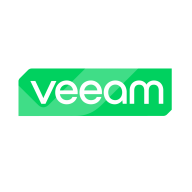

Nasuni and Veeam Data Platform both compete in data storage and management, offering cloud-based solutions. Nasuni stands out with its cloud integration and scalability, while Veeam excels in backup performance and speed.
Features: Nasuni offers valuable features like global file locking, continuous file versioning, and unlimited storage capacity, which simplify disaster recovery. Veeam Data Platform provides robust backup and replication capabilities, VM environment integration, and an instant recovery feature, ensuring data integrity and resilience.
Room for Improvement: Nasuni could improve file synchronization speed, user accessibility, and reporting. Enhancing support for specific platforms and better integration with cloud services would be beneficial. Veeam Data Platform could improve support for non-VMware hypervisors, cloud service integration, better deduplication, and a simpler pricing model. Stronger support for physical servers and development towards rapid recovery and automation are desired.
Ease of Deployment and Customer Service: Nasuni's hybrid and cloud solutions offer global availability and centralized access management. Customer service receives positive feedback, although some delays are reported. Veeam operates predominantly on-premises, offering hybrid and cloud capabilities with comprehensive deployment features. Its customer service is responsive, yet there is room for improvement in support for complex environments.
Pricing and ROI: Nasuni's pricing includes licenses, cloud storage, and hardware, based on terabytes. Despite the cost structure, users find value in reduced labor and enhanced data management. Veeam Data Platform offers competitive pricing per CPU or instance, providing good value through data protection. Users note ROI through reduced management time and improved disaster recovery, although its increasing costs may impact smaller organizations.
The escalation from first, second to third tier is sometimes very long-lasting, but the resolve rate is quite high.
I would rate their technical support a 10 out of 10.
Most cases are handled perfectly.
I rated the scalability as seven because even though the solution can scale, load balancing must be done manually, as it's not automated.
Integration with other vendors is also seamless.
I would rate the scalability part of Veeam Data Platform 10 out of 10 because we have the ability to scale out the product at any time with scale-out backup repositories and can add licenses as needed.
In order to scale Veeam Data Platform, we have to pay a lot more money.
There are no issues with stability in Veeam Data Platform.
I can say the stability of Veeam Data Platform is almost 8 to 9, as the cluster functionality was not there in earlier platforms such as version 12, but is provided in version 13.
I suggest Nasuni improve their syslog forwarders to support TCP protocol, as it's more secure than UDP, which is plain text and not protected at all.
The improvement we would like to see is the option to scale Veeam Data up in smaller sections rather than large sections, which requires paying much more.
OpenStack is something Veeam Data Platform doesn't support, and they haven't indicated that they will support it in the future.
Reducing it by 20% would make it more accessible to a broader range of customers.
I prefer solutions with lower pricing.
I believe it is not expensive; it's the regular price.
Veeam Data Platform is more expensive than OpenStack because we pay for it in US dollars, while we pay for OpenStack in Egyptian pounds.
A reduction of 20% in the current cost would make the solution more attractive to clients.
The features I find most valuable in Nasuni are the unlimited snapshots, antivirus capabilities, auditing, and ransomware protection.
The platform is user-friendly, comprehensive, and compatible with numerous market solutions, including virtualization and bare metal servers.
The most important aspect of this platform is data security with immutable data in the storage.
Ransomware protection is a good feature added in Veeam Data Platform from version 12 onwards.
| Product | Market Share (%) |
|---|---|
| Veeam Data Platform | 8.4% |
| Nasuni | 1.1% |
| Other | 90.5% |

| Company Size | Count |
|---|---|
| Small Business | 3 |
| Midsize Enterprise | 8 |
| Large Enterprise | 24 |
| Company Size | Count |
|---|---|
| Small Business | 217 |
| Midsize Enterprise | 99 |
| Large Enterprise | 139 |
Nasuni is a file data services enterprise focused on assisting firms with their digital transformation, global expansion, and information awareness. The Nasuni File Data Platform is a suite of cloud-based services designed to enhance user productivity, ensure business continuity, provide data intelligence, offer cloud options, and simplify global infrastructure. This platform and its auxiliary services are projected to replace conventional file infrastructure such as network attached storage (NAS), backup, and Disaster Recovery (DR), with an expandable cloud-scale solution. By storing file data in scalable cloud object storage from multiple providers, Nasuni positions itself as a cloud-native alternative for traditional NAS and file server infrastructure. Based in Boston, Massachusetts, USA, Nasuni serves sectors like manufacturing, construction, technology, oil and gas, financial services, and public sector worldwide, offering its services in more than 70 countries.
James J., IT Manager at a marketing services firm, says Nasuni’s management dashboard is helpful because he's able to view all of the different filers at once rather than check each one of them individually. He values the software’s security, reliability, good performance, helpful alerting, and responsive support.
According to a Server Engineering Services Lead at a mining and metals company, Nasuni offers good OR and DR capabilities, performs well, offers data security, and continuous file versioning helps recover from hardware failures.
The Managing Director of IT at a construction company appreciates Nasuni because it eliminates a lot of work that was previously done when managing backing up and restoring data files.
Veeam Data Platform is a leader in data resilience, providing businesses with reliable and secure backup, recovery, and advanced data insights. It is designed to combat today's cyber threats while ensuring data remains protected, adaptable, and recoverable.
Engineered to offer a seamless and powerful data resilience experience, Veeam Data Platform helps organizations with intelligent protection beyond just backup. It enables orchestrated and verifiable recovery processes, helping maintain continuous operations. By offering integrated solutions against evolving cyber threats, this platform assures businesses of data availability and precision restoration, empowering them to remain resilient under any circumstances. Its robust security features, coupled with efficient replication and deduplication benefits, deliver confidence in data management across hybrid and cloud deployments.
What features make Veeam Data Platform stand out?Veeam Data Platform is primarily used for managing backup and replication across VMware and Hyper-V environments, supporting both cloud and on-premises infrastructures. In industries managing significant IT services, it assists in disaster recovery and virtual machine protection, enhancing business continuity. Its integration with applications like Microsoft Office 365 ensures reliable data protection and quick recovery, making it beneficial for those looking to streamline operations across diverse deployment scenarios.
We monitor all Cloud Backup reviews to prevent fraudulent reviews and keep review quality high. We do not post reviews by company employees or direct competitors. We validate each review for authenticity via cross-reference with LinkedIn, and personal follow-up with the reviewer when necessary.